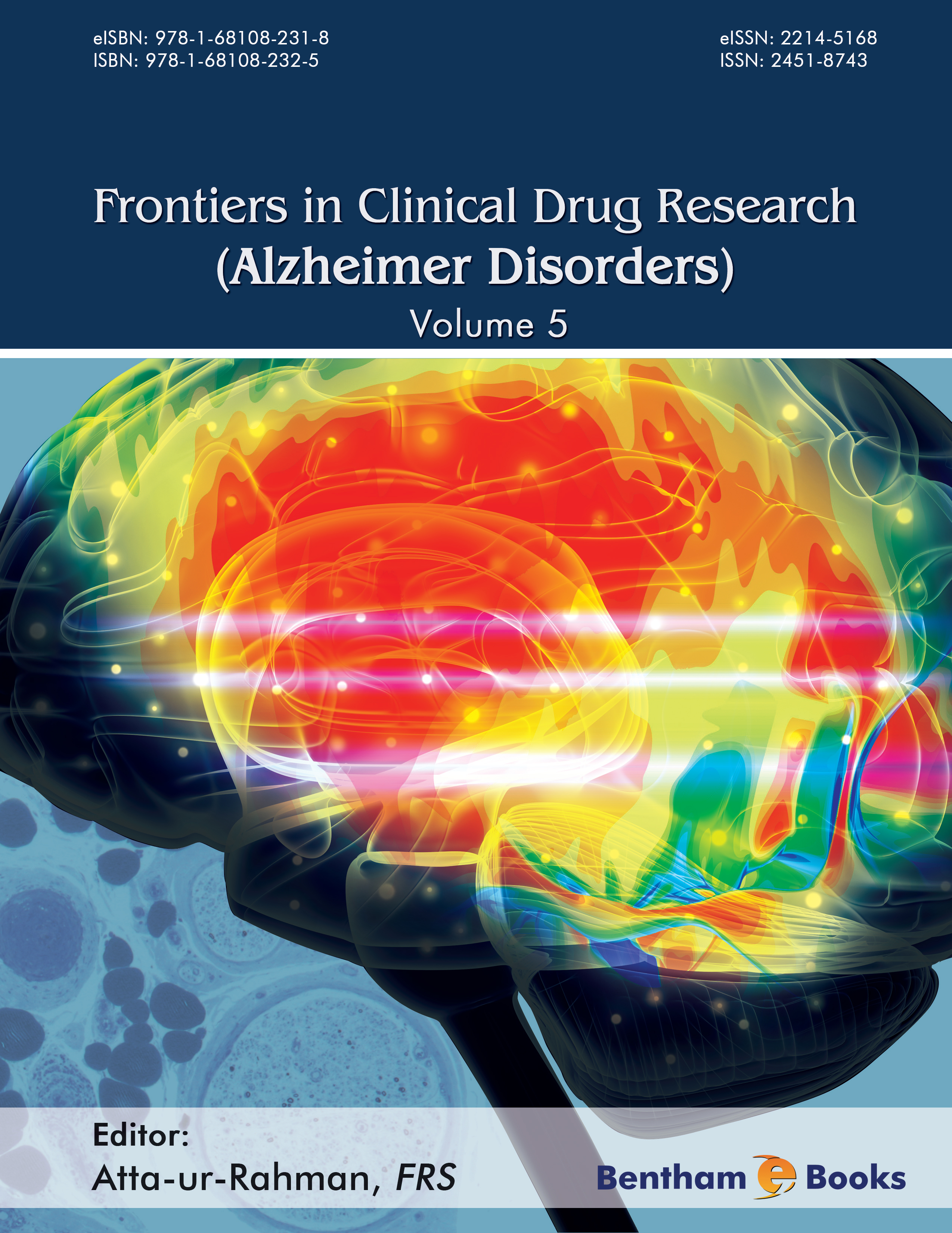Introduction
Frontiers in Clinical Drug Research - Alzheimer Disorders
is an e-Book series which covers recent topics related to understanding Alzheimer's disease (AD) that causes dementia and has a neurodegenerative effect on the brain. The disease affects memory, thought process, and language of affected individuals. Chapters in each volume focus on (Alzheimer Disorders) drug research with special emphasis on clinical trials, research on drugs in advanced stages of development and cure for Alzheimer’s disease and related disorders.
Frontiers in Clinical Drug Research - Alzheimer Disorders
will be of particular interest to readers interested in drug therapy of this specific neurodegenerative condition and related brain disorders as the series provides relevant reviews written by experts in field of Alzheimer’s Disease research.
The fifth volume of this series features chapters covering critical discussions on AD management and new therapies. The topics reviewed in this volume include:
- Current concepts in management of AD
- The amyloid cascade hypothesis and stem cell-based AD therapy
- Phytochemicals targeting AD
- Dementia screening in primary clinical care settings
- Updates in dementia / AD clinical research and drug development

